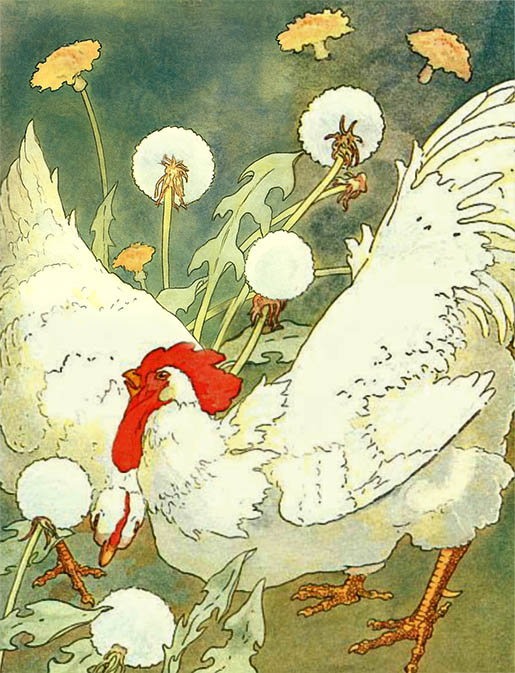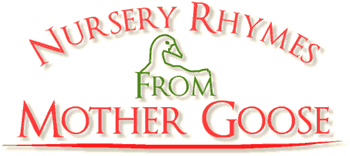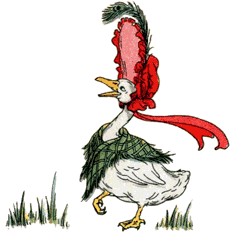Cock, Cock, Cock, Cock
“Cock, cock, cock, cock,
I've laid an egg,
Am I to gang ba-are-foot?”
“Hen, hen, hen, hen,
I've been up and down
To every shop in town,
And cannot find a shoe
To fit your foot,
If I'd crow my hea-art out.”

Some nursery rhymes are sweet, some are silly, and some are just plain odd. Cock, Cock, Cock, Cock falls into that last category. It’s a short back-and-forth between a hen and a cock. The hen proudly announces she’s laid an egg and asks if she must really go barefoot. The cock, puffed up and responsible, insists he’s scoured every shop in town for shoes but found nothing small enough for her feet. Even if he crowed his heart out, it wouldn’t help.
Origins
This little verse comes from the Scottish and Northern English tradition, and the Scots word gang (“go”) gives away part of its heritage. It was in print by the 19th century and slipped into collections of Mother Goose and similar anthologies by the early 20th. Like many rhymes of its kind, it likely started out as a scrap of oral play — quick, rhythmic, and easy to act out in a singsong exchange between children. The rhythm and repetition (“cock, cock, cock, cock… hen, hen, hen, hen…”) made it easy to remember and fun to perform.
Meaning
There isn’t much allegory here — it’s mostly playful nonsense. The hen is proud of her egg but complains about being barefoot, as if she were a little girl with no shoes. The cock tries to comfort her, claiming he’s done his best, but the whole scene is impossible anyway: hens don’t wear shoes. Children laughed at that absurdity, while adults may have grinned at the hint of domestic banter — the hen as the complainer, the cock as the exasperated provider.
Rhymes like this thrived because they weren’t just read — they were acted out. Children loved splitting into roles: one crowing loudly as the cock, the other clucking back as the hen. The rhythm was simple enough to remember but playful enough to speed up until the whole performance ended in giggles. The Scots word gang (“go”) added its own flavor, reminding listeners where the rhyme had its roots. In old picture books, artists leaned into the comedy. They often showed the cock puffed up and strutting, as if he really had been trudging from shop to shop, while the hen fussed over her bare feet.

